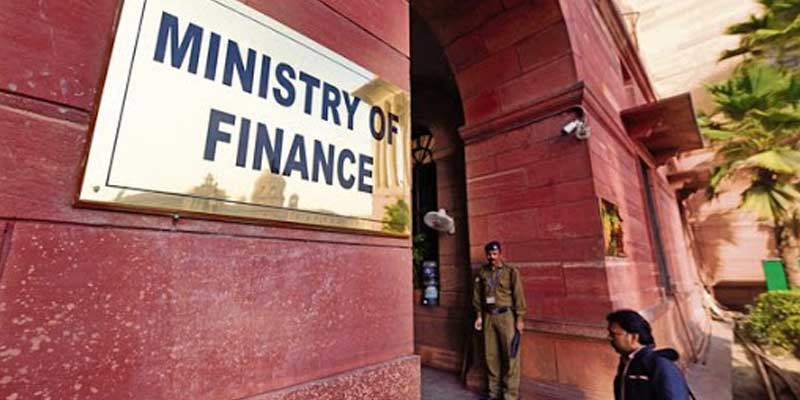- India
- Jul 09
Explainer / Release of Post-Devolution Revenue Deficit (PDRD) grant
• Finance ministry released the fourth instalment of Post-Devolution Revenue Deficit (PDRD) grant of Rs 7,183 crore to 14 states for the current fiscal.
• The PDRD grants are provided to the states under Article 275 of the Constitution. Article 275 deals with grants from the Union to certain states.
• The eligibility of states to receive this grant and the quantum of grant for the period from 2020-21 to 2025-26 was decided by the 15th Finance Commission based on the gap between assessment of revenue and expenditure of the states concerned after taking into account the assessed devolution during this period.
• The 15th Finance Commission has recommended a total PDRD Grant of Rs 86,201 crore to 14 states for the financial year 2022-23. The grant is released in 12 equated monthly instalments.
• The states for which PDRD grant has been recommended by the 15th Finance Commission during 2022-23 are Andhra Pradesh, Assam, Himachal Pradesh, Kerala, Manipur, Meghalaya, Mizoram, Nagaland, Punjab, Rajasthan, Sikkim, Tripura, Uttarakhand and West Bengal.
• With the release of the fourth instalment for the month of July 2022, the total amount of PDRD grants released to the states in 2022-23 stands at Rs 28,733.67 crore.
What is the Finance Commission?
• The Finance Commission is constituted by the President under Article 280 of the Constitution, mainly to give its recommendations on distribution of tax revenues between the Union and the states and among the states themselves.
• The Fifteenth Finance Commission was constituted on November 27, 2017 against the backdrop of the abolition of the Planning Commission (as also of the distinction between Plan and non-Plan expenditure) and the introduction of the Goods and Services Tax (GST), which has fundamentally redefined federal fiscal relations.
• In November 2020, the Fifteenth Finance Commission, led by chairman N.K. Singh, submitted its report for the period 2021-22 to 2025-26 to President Ram Nath Kovind.
What are the functions of the Finance Commission?
Two distinctive features of the commission’s work involve redressing the vertical imbalances between the taxation powers and expenditure responsibilities of the Centre and the states respectively and equalisation of all public services across the states.
It makes recommendations on:
• The distribution between the Union and the states of the net proceeds of taxes that are to be, or may be, divided between them and the allocation between the states of the respective shares of such proceeds.
• The principles that should govern the grants-in-aid of the revenues of the states out of the Consolidated Fund of India.
• The measures needed to augment the consolidated fund of a state to supplement the resources of the panchayats in the state on the basis of the recommendations made by the Finance Commission of the state.
• The measures needed to augment the consolidated fund of a state to supplement the resources of the municipalities on the basis of the recommendations made by the Finance Commission of the state.
What are the qualifications required for its members?
As per the provisions contained in the Finance Commission (Miscellaneous Provisions) Act, 1951, and The Finance Commission (Salaries & Allowances) Rules, 1951, the chairman of the commission is selected from among persons who have had experience in public affairs, and the four other members are selected from among persons who:
(a) are, or have been, or are qualified to be appointed as judges of a High Court or
(b) have special knowledge of the finances and accounts of government or
(c) have had wide experience in financial matters and in administration or
(d) have special knowledge of economics.
When was the first commission constituted?
The First Finance Commission was constituted by a presidential order under the chairmanship of K.C. Neogy on April 6, 1952.
Do other countries have such commissions?
Most federal systems resolve the vertical and horizontal imbalances through mechanisms similar to the Finance Commission. For example, Australia and Canada.
Constitutional provisions under which Finance Commission acts:
• Article 268 - Duties levied by the Union but collected and appropriated by the states.
• Article 269 - Taxes levied and collected by the Union but assigned to the states.
• Article 270 - Taxes levied and collected by the Union and distributed between the Union and the states.
• Article 271 - Surcharge on certain duties and taxes for purposes of the Union.
• Article 274 - Prior recommendation of President required to Bills affecting taxation in which States are interested.
• Article 275 - Grants from the Union to certain states.
• Article 280 - Constituting the Finance Commission.
• Article 281 - Recommendations of the Finance Commission.
• Article 282 - Expenditure defrayable by the Union or a state out of its revenues.
Manorama Yearbook app is now available on Google Play Store and iOS App Store


